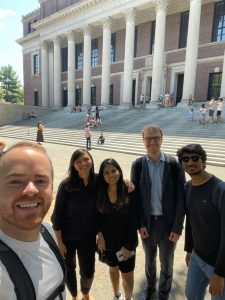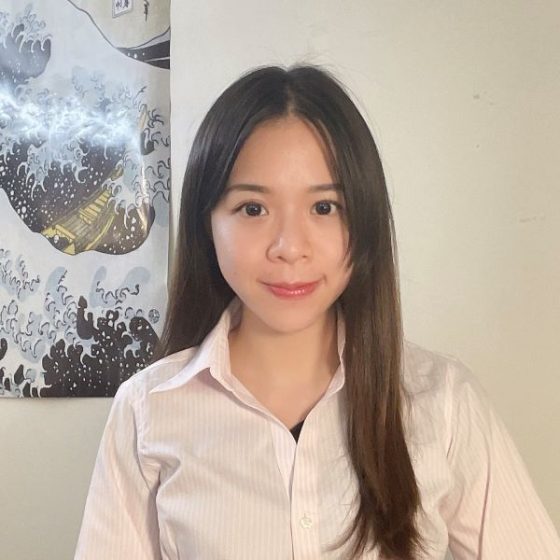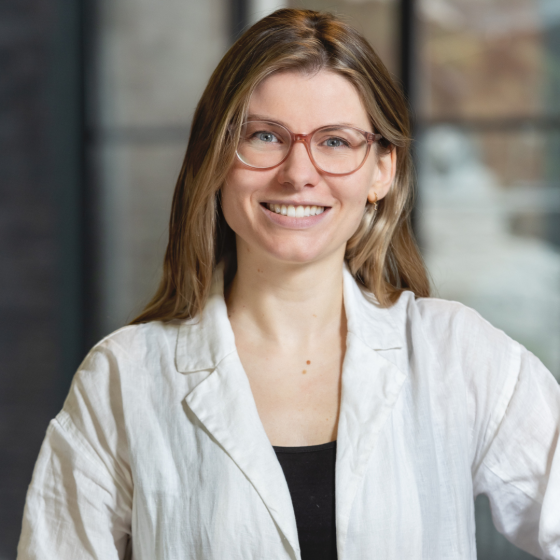I was initially uncertain whether my programme at LSE, the master’s in Human Resources and Organisations (HRO) fit my interest in pursuing PhD studies and an academic career. However, the programme and LSE emerged as essential building blocks in supporting my academic career ambitions. My MSc HRO and LSE enabled me to attend an academic conference in Boston, MA, the 83rd Annual Meeting of the Academy of Management (AOM 2023).
Let me briefly tell you about how I got to AOM 2023 and how my programme and LSE supported me, before elaborating on what you can do to benefit the most from your studies at this incredible university – whether you have academic or non-academic career ambitions.
My route to AOM 2023 and my experience at the conference
Whilst not everyone is interested in an academic career, I have been interested in research since my undergraduate studies. Starting with a simple research assistant job for an applied HR project, I found myself fascinated by discovering the causes of things (LSE’s motto) and have since gained further experience through two dissertations and two work-in-progress papers. One of the papers evolved from attending an LSE professor’s office hours and is a collaboration with him. The other paper was accepted to AOM 2023 and received a “Best Paper Award”.
Having talked to some LSE faculty about the latter paper and the conference, I realised that AOM 2023 is a must-go for aspiring academics: 10,000+ academics from around the world and 1,500+ in-person sessions spread across five days. Although AOM 2023 was overwhelming, I focused on attending sessions that fit my current academic career stage and my research interests. My highlights included:
- A consortium for pre-doctoral students
- Paper symposia on criteria for creativity evaluation and creators’ responses within creativity evaluation
- Pleasant and insightful conversations with various scholars
- Exploring the Harvard campus together with PhD students from LSE
LSE students in front of the Harvard Library, MA. From left to right: Caleb Phillips, Anna Czaplewska-Jaffery, Rashi Sonal, Jonah Rösemeier, Muhammad Aqeel Awan
My programme and LSE’s support
Perhaps more interestingly, both professors and LSE played a big part in inspiring me to make the most out of the conference and enabled me to attend the conference in the first place. Professors at LSE from the Organisational Behaviour Faculty Group, who instruct many of the MSc HRO’s classes, were incredibly helpful in telling me what AOM 2023 is about, how to make the most out of it as a first-time attendee, and which sessions to attend (as well as which to avoid). The MSc HRO programme director, Dr. Hyun-Jung Lee, was especially supportive by helping me secure financial support for attending the conference.
LSE also helped me to easily connect with various faculty that subsequently supported me in attending AOM 2023:
- Students are assigned an academic mentor – a faculty member that you can approach for both academic and non-academic matters.
- LSE professors have weekly office hours that you can use to connect with them to talk about yours and their research, as well as research opportunities.
- Elective and additional courses allow you to engage with a variety of research streams, each represented by different top-notch LSE professors who you can connect with.
My advice to you
I believe that my personal experience sends a clear message to you, including current and prospective LSE students: If you are passionate about a subject, LSE will support you in a myriad of ways.
So, what can you do if you want to purposefully pursue your career ambitions during your studies at LSE—whether they are academic or non-academic? Here’s my personal advice:
- Connect with professors. Talk to your academic mentor, visit professors during their office hours, and approach them after the lecture. For academic career ambitions, this is critical. Even if you want to pursue a non-academic path, they may have helpful insights or connections from previous industry experiences or from engaging with companies because of their research.
- Engage in extracurricular activities. For me, this was a research project with one of LSE’s professors. However, you may also conduct independent research to innovate LSE as part of LSE Change Makers. Non-academically, you may engage in one of LSE’s many career-focused student societies, make use of mentoring schemes, or browse LSE Careers to talk to experienced careers consultants, discover exciting events at LSE, and find your next job.
- Ask for (financial) support. While LSE does have well-known (financial) support for many of your potential endeavours, even founding your own business, some support opportunities may not exist yet or be well-known. Ask your professors, your academic mentor, your programme office, or other staff at LSE—they are happy to help and support you wherever possible. Personally, professors and LSE non-financially and financially helped me attend AOM 2023, only because I asked around.
In sum: Get involved! LSE features various opportunities that enable you to purposefully pursue your career ambitions and make the most of your studies, beyond the curriculum.






